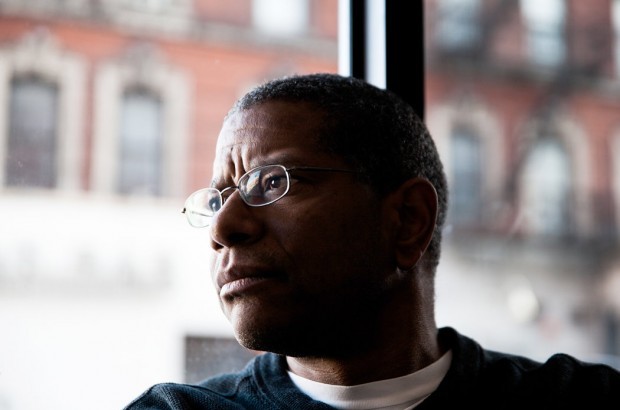TICE CIN investigates how politics overshadows plaudits for the 2016 Man Booker prize winner, Paul Beatty.
What if you realise that everything you think you know is not as it appears? This was the conundrum raised by the winner of the 2016 Man Booker Prize for Fiction, Paul Beatty, during an event at Foyles Charing Cross Road Bookstore. In conversation with The New Statesman, the author shared powerful insights into racism, cultural appropriation and growing up in LA.
Beatty describes the moment he first realised his favourite childhood TV show The Little Rascals (filmed in the 1920s and ’30s and aired on TV from 1955) was not just racist but ‘really racist’. He was seventeen and watching his white friends laugh at jokes which he suddenly understood to be racist. The anxiety he felt in recognising a received idea as problematic sees a response in this year’s Booker novel. The Sellout is based on the premise that slavery returns to a segregated LA, and discomfort suffuses the novel, which holds you on a razor’s edge between a smirk and a groan until the very end. Although savagely witty, Beatty shies away from the word ‘satire’, seeing it as a reductive term employed to avoid confronting the specifics of material in a piece of writing and asking ‘what does this mean?’ So, what does The Sellout mean? And why is Beatty’s perspective so relevant?

Current popular literary conversation surrounding work by black writers, and particularly black American writers, consistently returns to the subject of cultural appropriation. The interviewer at this event, Tom Gatti, apologises for asking Beatty about it; it is a topic he is questioned on regularly.
This year marks the second Booker in a row won by a black writer, and the first to be won by an American writer. With recent surges in xenophobia and racism condoned and driven by political figures, and the sidelining of issues important to the black community by influential voices in the literary world (such as Lionel Shriver’s dismissal of cultural appropriation as ‘a passing fad’), there seems to be a rising appetite for writers who vigorously confront issues facing black Americans.
Worryingly this trend has the potential to limit these authors. It echoes a problem faced by black writers of the Harlem Renaissance (1920-30), identified by Langston Hughes: ‘the present vogue in things Negro may do as much harm as good for the budding artist’; by racialising a writer we risk focusing narrowly on racial elements in their work, rather than crediting its artistic merits. Whilst this sort of racial and political approach is important, when it gets picked up by the publishing world as a way to sell books, it can severely limit how black writers can present their work and the sort of work they are encouraged to write, as with Langston Hughes.
Press coverage of Beatty’s win repeats that he is the first American to win the prize, but his work is surely more than a zeitgeist-capturing, box-ticking toy to be delivered in a white envelope. The Sellout challenges taboos, but it is not simply a satire directed at corrupt institutions, it is a novel of feeling written by a poet. Lines like ‘in grade school, I knew how the taste of pomegranates would bring you to tears’, were inspired by the author’s childhood. Beatty does not attempt to document the black American experience or speak on behalf of black Americans. He documents his character’s experience–one that echoes his own.
Despite this, in writing a novel like The Sellout one is forced into a dialogue on race, and having won the Booker prize, participation in this dialogue becomes a responsibility, one Beatty hasn’t been afraid of. However, since his win, interest in Beatty’s position on US race relations has threatened to overshadow discussion of his work. On this occasion, Beatty is compelled to remind Gatti that, ‘I’d like to focus on the book if you don’t mind’.
The fact that that something must be packaged in a pleasing way to be marketable is an irksome trait of the publishing industry. Beatty’s work is automatically placed into a political context, yet it transcends the genres of politics and satire. The Sellout is a powerful discussion about racism, but it also deserves appreciation as a piece of beautifully poetic writing. In the ongoing debate around tackling modern racial segregation and violent nationalism in a dissatisfying political climate, The Sellout is written with an ironic tenacity that pushes at the parameters of the racialised novel whilst still managing to be an original exploration of the recovery of identity.
Making art speak out on issues affecting modern culture can be a forced exercise structured around perceived and expected responses. While deriving more than pleasure from a text adds a new dimension to it, recognition of the racial didacticism of The Sellout should never override the wealth of ideas explored in this year’s Man Booker prize winner.
‘The Sellout’ is published by Oneworld (2016). Signed paperback copies are available at Foyles for £12.99. For more information about literary events at Foyles Charing Cross, visit http://www.foyles.co.uk/bookstore-charing-cross.





